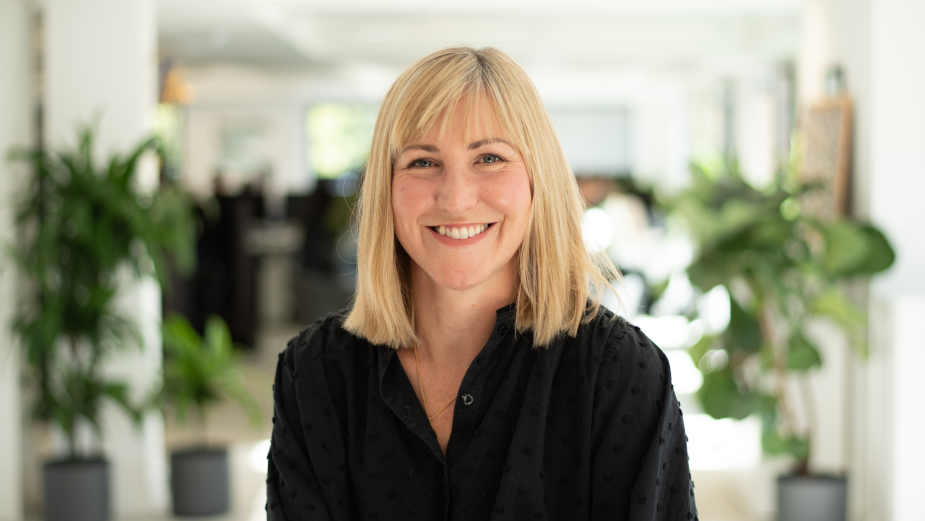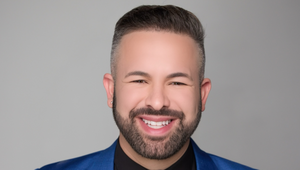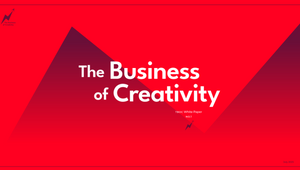
Bossing It: Being a 'Subject Matter Expert' with Sam Hicks

Sam Hicks is the managing director, UK for global creator commerce company, Whalar. She is responsible for spearheading the company's strategic initiatives, driving innovation, fostering collaboration, and unlocking opportunities for creators and brands in the UK market.
Sam brings an extensive background in driving business growth for the Creator Economy, supporting operational leadership and building company culture. With over 20 years' experience in media, technology, content, sales and marketing, Samantha has been at the forefront of developing commercial and business strategies, and innovation pilot programmes for global leading brands spanning CPG to Telco, Apparel to Finance, including 02, P&G, Nike, and Diesel.
Sam’s previous roles at Whalar included commercial director, UK, and more recently, SVP account management, EMEA, where she was responsible for developing and driving the commercial sales strategy in EMEA to unlock growth opportunities for clients. She led a team focused on building long-term, profitable, and trusted relationships with clients, and worked closely with cross functional peers to deliver best-in-class experiences for those clients.
Passionate about people, culture, and technology, before joining Whalar, Samantha led Spotify Advertising’s EMEA and APAC account management teams, where she, along with her team, was awarded ‘2020 UK Sales Team of the Year’ by MediaWeek. She was also the founding member and co-chair of Spotify’s Global DIB committee and is a member of ActionAid UK’s Arise Fund Leadership Circle – a fund that supports and trains women-led emergency response and preparedness.
LBB> What was your first experience of leadership?
Sam> My first experience of leadership was managing a team of digital media planners from several high-profile agency accounts in the early days of digital.
The transition from managing a small group to a larger, multi-market team brought a whole new set of responsibilities, including motivating, empowering and supporting them across a myriad of different projects at any one time. Additionally, numerous senior people, agencies and clients wanted their time, adding an additional layer of complexity.
This experience helped shape my approach to leadership and team management, as I learnt the importance of decision making, working cohesively as a team, managing people older than me, and the importance of giving constructive feedback - both good and bad.
LBB> How did you figure out what kind of leader you wanted to be – or what kind of leader you didn’t want to be?
Sam> As I imagine most have, I’ve been exposed to a lot of different leadership styles and realised early on that the leaders I was most inspired by were the ones who demonstrated the ability to strike a delicate balance: they were not only all-around decent human beings but also adept at leading with a strong sense of culture, confidence in their decisions, as well as an astute awareness of the business's needs.
I count myself lucky that I haven’t directly had awful leadership, but have observed others' styles which has shown what could happen if you lean too much into one side of trying to please everyone and the other of being so focused on business returns there are a lot of casualties on the way.
LBB> What experience or moment gave you your biggest lesson in leadership?
Sam> My biggest lesson in leadership was in managing a big team restructure across EMEA and APAC in which people’s day to day roles were going to significantly change. There were a lot of cultural nuances in how teams were going to receive the news and manage the change, as well as differences in the starting point in individual markets. Being based in London and trying to do it remotely added another level of complexity.
Being super prepared, open and as transparent as possible, listening and over communicating, and then communicating some more, were my biggest lessons. That, and having a leadership team of absolute rockstars with a safe space where they too could share concerns and support each other kept everyone sane and heard through a turbulent time.
LBB> Did you know you always wanted to take on a leadership role? If so how did you work towards it and if not, when did you start realising that you had it in you?
Sam> I haven’t ever been intentional in seeking out leadership roles, and in some instances shied away from it, preferring to be a ‘subject matter expert’. I’ve always loved ‘doing the work’ and remember an old boss telling me (when I was resigning from an early team leadership position), that the higher you go the more you move away from the work itself. That stuck with me and despite my next couple of roles being a ‘subject matter expert’, I usually set up and ran client and employee acceleration programmes, gained some kind of ‘pastoral’ responsibility across wider teams and had mentees. I didn’t consider at the time I was in an albeit different leadership position.
After I returned from maternity leave, I decided I wanted to focus on senior management roles, being involved in both key business decisions and helping teams succeed, so I pivoted within the company at the time back into direct team leadership roles.
LBB> When it comes to leadership as a skill, how much do you think is a natural part of personality, how much can be taught and learned?
Sam> I think it’s a combination of personality, life experiences and learning for sure. As a leader, you have to want to lean into your role and responsibilities in the first place, and be comfortable and confident in making decisions that will impact others. I also think it’s important to have regular ongoing coaching or training to hone and refine your skills.
I’ve been really lucky to work for companies that have invested in their leadership teams' development. Such initiatives have allowed us to gain insights into effective leadership practices, foster better communication and collaboration, and gain the tools needed to lead with confidence and competence.
LBB> What are the aspects of leadership that you find most personally challenging? And how do you work through them?
Sam> Learning what, when and how to delegate has been the biggest personal challenge.
This comes from not wanting to put undue pressure and additional workloads on others and an element of priding myself on ‘getting things done’. This isn’t fair either on myself, family or colleagues by not playing to their strengths and aiding their development. Learning the art of delegation and doing so in a fair and equitable way has been a journey.
LBB> Have you ever felt like you've failed whilst in charge? How did you address the issue and what did you learn from it?
Sam> Absolutely! There are multiple times I’ve reflected on a situation or decision and thought ‘how could I have approached it differently?’ and ‘would it have impacted the overall outcome?’. I learnt early on that receiving (and giving) fast feedback really is a gift and seeking it out regularly is crucial for growth whatever the stage of your career.
From a business perspective, being unsuccessful in a highly competitive pitch offers a time for reflection and dedicating time to review external and internal feedback before moving onto the next thing, means you’re able to apply those learnings to the next one.
LBB> In terms of leadership and openness, what’s your approach there? Do you think it’s important to be as transparent as possible in the service of being authentic? Or is there a value in being careful and considered?
Sam> My leadership style is to be as transparent as possible across all aspects of the business, and I prefer open and timely communication so everyone knows what’s going on, what the expectations are, progress against goals, jobs to be done, next steps etc.
That said, I’m cognisant that as a leader your words can have a significant impact, and therefore when and how transparent you can be depends on the situation and the ambition it serves. My default is transparent, but balanced with consideration!
LBB> As you developed your leadership skills did you have a mentor? If so, who were/are they and what have you learned? And on the flip side, do you mentor any aspiring leaders and how do you approach that relationship?
Sam> I’ve had several ‘unofficial’ mentors over the years who I’ve turned to for advice; male and female, generally a couple of levels up and from different businesses. They’ve acted as sounding boards, offered sage advice and pushed me out of my comfort zone when needed. I’ve also been really lucky to have a cohort of female peers who I started out with in the industry who’ve all gone on to do incredible things. These kickass women offer next level friendship and leadership support.
In terms of paying it forward, over the years I’ve been part of formal mentorship programmes as well as just being on hand to listen and offer advice if asked. Most recently I was privileged when a colleague from a previous position asked if I could help mentor them as they worked through the next steps of their leadership journey.
I would also love to set up a more ‘official’ reverse mentoring programme with some gen z colleagues - there’s so much I’m already learning from them, which they may not even realise!
LBB> In continually changing market circumstances, how do you cope with the responsibility of leading a team through difficult waters?
Sam> This is where a culture of transparency, open communication, balanced with consideration comes in.
We work in a business environment that is continually changing and in the Creator Marketing space particularly we’ve been on quite the journey over the last few years.
Being close to the teams and open with communication - without overloading people - is crucial regardless of whether you are going through a difficult period or you are on a rocket ship of growth. Teams want to know the trajectory and feel confident there is a plan.
Having a united, strong leadership team who are listening and communicating helps teams feel informed and confident that if a plan needs to pivot, they can be confident in the decision making process.
LBB> As a leader, what are some of the ways in which you’ve prioritised diversity and inclusion within your workforce?
Sam> DEI is something I’m extremely passionate about, and I’m fortunate to work at a company where it’s embedded throughout the business - both internally and externally. As a creator commerce company, our values are underpinned by increasing equity and liberating all creative voices. To be able to do so, our workforce actively embraces the full spectrum of diversity, and is committed to building an inclusive working environment built on trust, mutual respect and a desire to learn and grow.
At Whalar, we have an incredible DEI Global Lead who is proactive and innovative in thinking of ways to curate ways to encourage DEI at work. We have employee support through - ERGs - which provide our workforce with safe spaces to connect, share experiences and learn from each other.
Last year, Whalar acquired a business that represents Deaf and Disabled talent which opened my eyes to the daily challenges facing the Disabled communities (check out ‘We The 15’ on YouTube). As a result many of our working practices have been reviewed with a focus on improving accessibility.
Last year, our team launched the Creator Academy to support emerging creators from underrepresented communities through learning programmes and mentorship. This was very much an initiative driven from the ground up and championed throughout the business.
In my previous role at Spotify, I was co-chair of the Ad Business Global DEI Committee where we set up an employee sponsorship programme in the US and UK, rolled out a Leadership for Belonging process globally, and set up an annual education series with external speakers.
Having formal structures in place sponsored by leadership, together with ERGs, will help any organisation prioritise DEI.
LBB> How important is your company culture to the success of your business? And how have you managed to keep it alive with increases in remote and hybrid working patterns?
Sam> ‘Build the culture and revenue will follow’ - I remember this being the mantra of an old colleague in Germany and I really believe in it. Having motivated, passionate teams, working towards the same ultimate goal, who respect each other and have fun together, drives business results.
As a remote first company, with a level of hybrid working, we have to be extra diligent to ensure culture building isn’t neglected, or we just rely on a few culture builders. Being intentional is key.
We kick off every Monday with an all team EMEA meeting that starts with People news and celebrations, before going into business details, current work and closing with an inspiration section to set the tone for the week. This allows every team to have a voice and gives people visibility on what’s happening across the business.
We have an awesome social committee who come up with all sorts of inclusive ideas for monthly company funded socials, and team offsites are used to bring people together, both in the local market and with global counterparts. Slack is our company's comms channel and we have very active communities on there. We have also much improved virtual brainstorms which serve as another touchpoint to bring people together.
LBB> What are the most useful resources you’ve found to help you along your leadership journey?
Sam> Besides the people I’ve been lucky enough to meet and learn from, regular leadership development programmes, which have gone beyond the usual management and communication styles training and focussed on leading with emotional intelligence, have been really useful.
If you’re able to have a professional coach at any point in your career, or can work through specific situations with a mentor or trusted individual as a coach, I’d highly recommend it!
I’m also an avid reader across all sorts of genres, and have been inspired by memoirs such as Shoe Dog by Phil Knight and Emotion by Design by Greg Hoffman as well as the classic business books such as How to Win Friends and Influence People by Dale Carnegie.
I’m always looking for new podcasts and generally find anything by Scott Galloway (Prof G Pod and Pivot) is a master class. There are heaps of interesting industry specific ones too, as well as HR related pods, and I take a lot from some of the On Strategy Showcase and Uncensored CMO conversations.
Ultimately being curious, open to learning and getting inspiration from multiple sources is the way to go. It’s not a one size fits all, or ever done and dusted.















